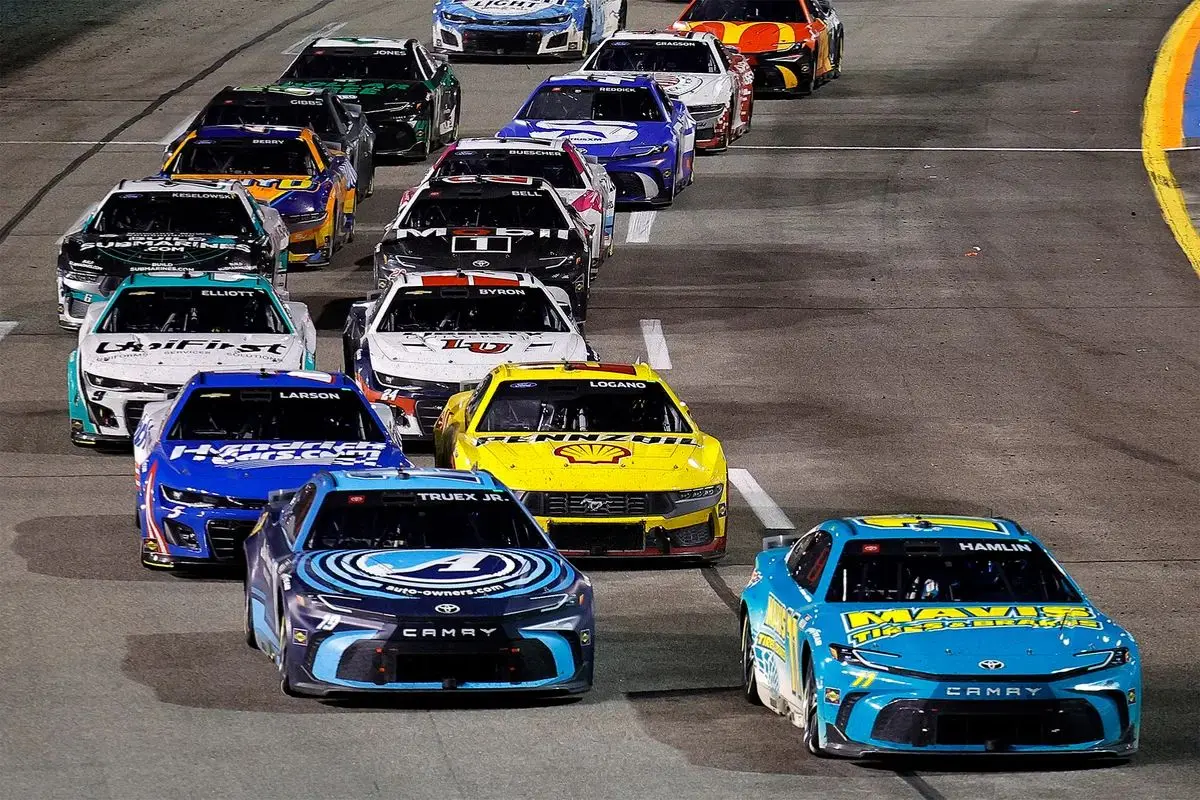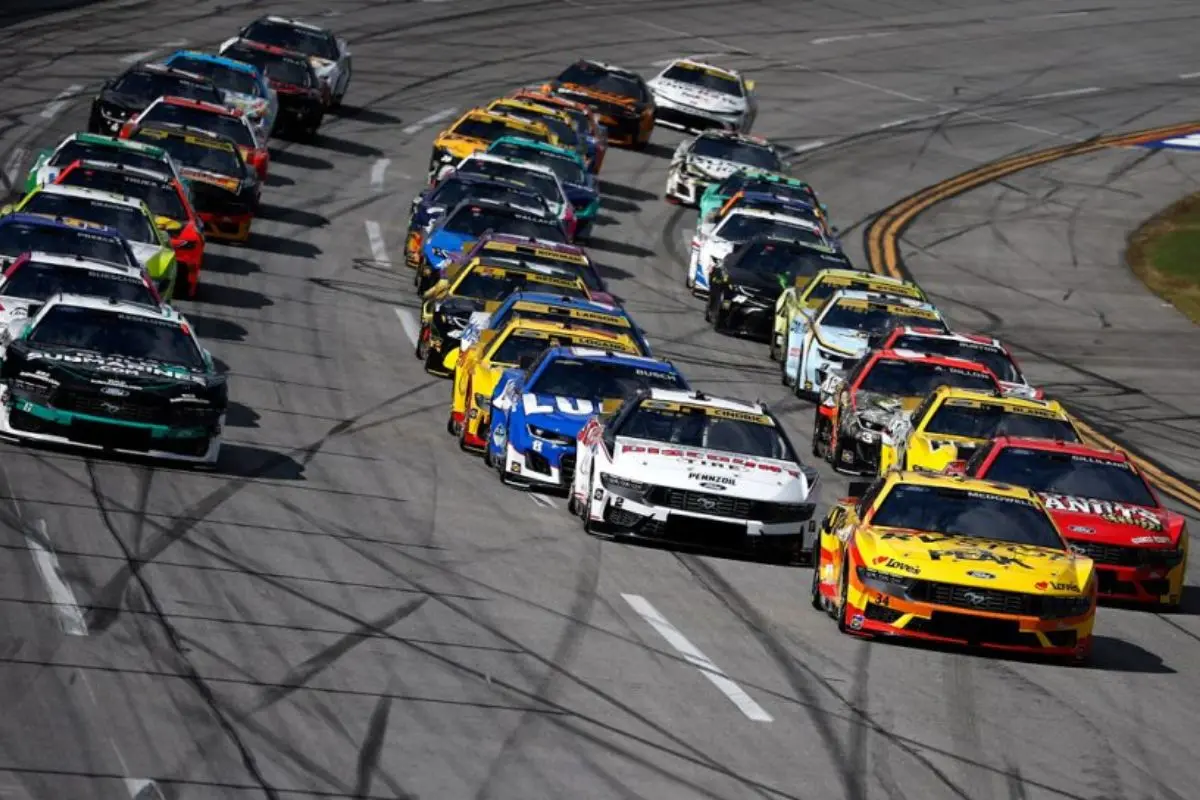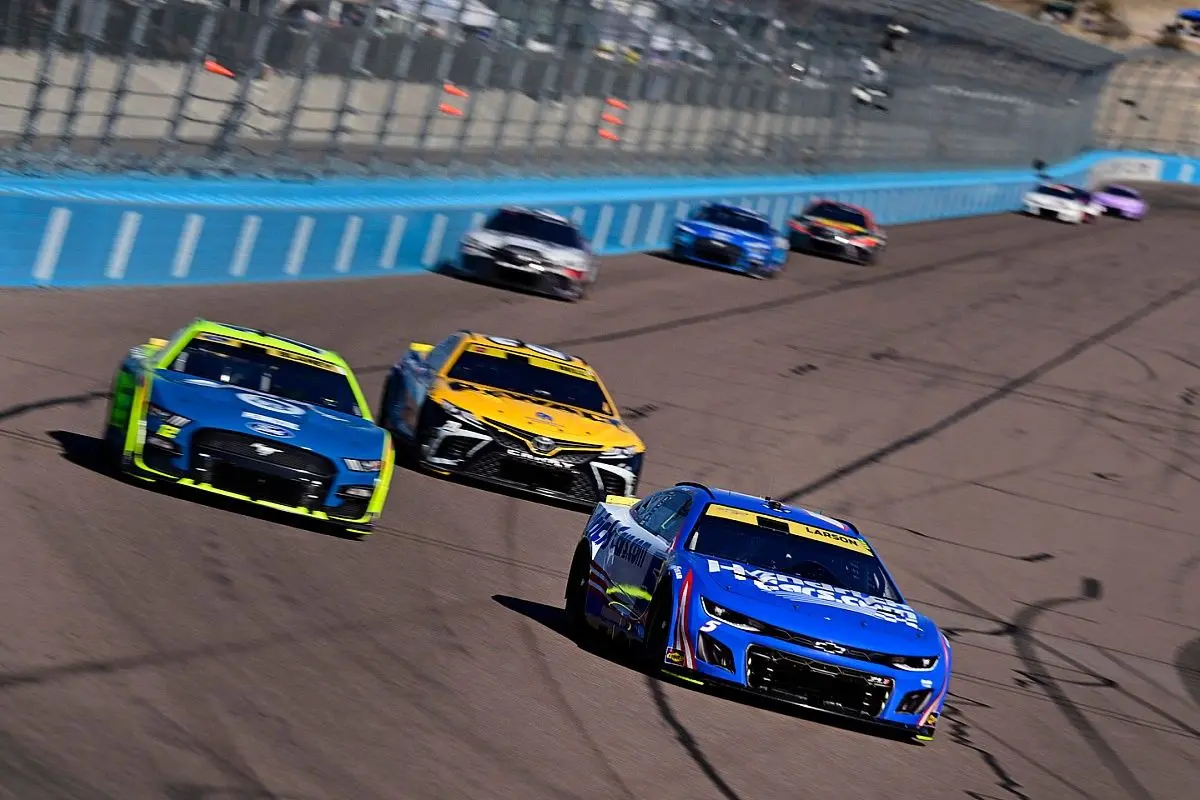Ken Schrader’s Critique Reveals NASCAR’s Struggles: Ken Schrader, a seasoned NASCAR veteran, urges the sport to redirect its focus from the allure of young drivers to the pressing issue of team ownership stability. While the emergence of talented youngsters such as Brexton Busch and Owen Larson garners attention, Schrader believes the future of NASCAR hinges on the sustainability of its teams. He stresses that financial constraints and legal disputes, particularly those involving charter deals and media revenue, present noteworthy challenges. By addressing these foundational concerns, Schrader argues, NASCAR can secure its competitive edge and long-term viability, signaling an essential discussion on priorities and tactical restructuring.
Key Highlights
- Ken Schrader emphasizes the importance of sustainable team ownership over focusing on young driving talent for NASCAR’s future.
- Schrader warns that NASCAR must prioritize addressing financial constraints faced by team owners to maintain competitiveness.
- He suggests that NASCAR’s long-term viability depends on resolving historical grievances and realigning administrative priorities.
- Schrader criticizes the current excitement around young drivers, arguing that support for team owners is more crucial.
- He calls for open dialogue and collaboration to ensure NASCAR’s sustainability amidst ongoing legal and financial challenges.
Next Generation of NASCAR Drivers
In NASCAR, the emergence of young talent offers an intriguing preview of the sport’s future. Recent performances in the Junior Sprint division of the Tulsa Shootout highlight this potential, where Brexton Busch, only nine years old, captured a Golden Driller trophy. His success provides a glimmer of hope for his father, Kyle Busch, whose own season has been devoid of victories.
Likewise, Owen Larson, offspring of Cup Series driver Kyle Larson, exhibited his skills by winning a heat race after starting from the eighth position—a reflection of his competitive spirit and nascent racing expertise.
Meanwhile, Keelan Harvick, son of Kevin Harvick, finished a respectable eighth in Florence, adding further to the narrative of a promising new generation poised to inherit the NASCAR legacy.
The accomplishments of these young drivers serve as a compelling indication of NASCAR’s path, suggesting a future where the offspring of current racing legends may dominate the circuit.
This trend raises pertinent questions about the sustainability of such a lineage-driven pipeline, especially in a sport where opportunity and resources often dictate access.

NASCAR’s Ongoing Struggles with Team Owners and Charters
NASCAR is currently blemished by discord between team owners and the organization, primarily revolving around issues with charters and revenue distribution.
Central to the turmoil is NASCAR’s perceived indifference to team owners’ demands, which has led to growing dissatisfaction and unrest. Team owners, who play a crucial role in the sport’s ecosystem, are pressing for charters to be made permanent.
This request stems from a desire for stability and predictability in a highly competitive environment. Charters, fundamentally licenses allowing teams to compete, are currently subject to renewal, leaving team owners at the mercy of NASCAR’s discretion.
Additionally, the distribution of media revenue remains a contentious point. Team owners are advocating for a more equitable share of this revenue, arguing that the current system disproportionately favors the organization at the expense of those who invest heavily in the sport.
Veteran racer Ken Schrader has cautioned NASCAR, suggesting that ignoring these pressing concerns could have long-term repercussions. His insights emphasize the importance of addressing these grievances to maintain the sport’s integrity and sustainability.
View this post on Instagram
NASCAR’s Lawsuit and the Strained Relationship with Team Owners
As NASCAR grapples with internal challenges, tensions have escalated into a monumental legal battle that could reshape the future of the sport. The lawsuit, arguably the most crucial in NASCAR’s 76-year history, was initiated by team owners Michael Jordan of 23XI Racing and Bob Jenkins of Front Row Motorsports.
Their refusal to sign the new charter deal in September has highlighted the strained relationship between NASCAR’s governing body and its team owners.
The lawsuit emphasizes a deep-seated discord that threatens to unravel NASCAR’s competitive landscape. By challenging the charter system, Jordan and Jenkins aim to address disparities that they believe hinder smaller teams from achieving long-term stability and success.
This legal confrontation is not merely about individual grievances but rather a call to action to reassess the mechanics of team participation and profitability within NASCAR.

Ken Schrader Reflects on the Future of NASCAR and Team Owners
Ken Schrader, a notable figure in the racing community, offers an open perspective on the evolving dynamics within NASCAR, particularly concerning young drivers and team ownership. During an interview with Xfinity Series veteran Kenny Wallace, Schrader expressed skepticism about the current focus on rising stars like the offspring of seasoned racers such as Kevin Harvick and Kyle Busch.
While acknowledging their potential, Schrader emphasized that the abundance of talented drivers is not NASCAR’s primary challenge.
“NASCAR’s in good shape. We have Kevin Harvick with his son Keelan. We have, obviously, Brexton Busch, who I’ve watched race in real… I did see something where somebody said, ‘Is Brexton winning because he’s got good equipment?’ … The point is, the kid can drive… You got Kyle Larson’s son Owen, we got Wyatt Miller… We’re looking pretty good, aren’t we?” – (Kenny Wallace)
Schrader’s insights highlight a critical issue: the sustainability of team ownership. He argues that the real concern lies not in finding capable drivers but in maintaining a robust pool of team owners willing to invest in the sport.
The dynamics within NASCAR, according to Schrader, require a recalibration of priorities to guarantee long-term viability.
- Driver Supply: Schrader believes that talented drivers are plentiful, with many enthusiastic to make their mark in NASCAR. The focus, he suggests, should shift from uncovering new talent to retaining existing team structures.
- Team Ownership Stability: Schrader’s argument is the necessity of stable and committed team owners. Without them, the sport risks losing its competitive edge and structural integrity.
- Future Challenges: As NASCAR evolves, addressing the challenges faced by team owners should take precedence. This includes managing financial constraints and fostering beneficial relationships with the governing body.
“Forget about every one of them. No I mean, that’s great, and they’re in the system. They got their foot in the door when the time comes. But there will be a thousand others – drivers are the easiest thing to get. And there’s good drivers. We just gotta keep enough car owners.” – (Ken Schrader)
NASCAR’s History of Strained Relationships and Lawsuits
Amidst the ongoing dialogue about team ownership and young talent in NASCAR, the sport’s history of strained relationships and legal disputes cannot be overlooked. This backdrop of discord has shaped the dynamics within the industry, with recent developments highlighting persistent challenges.
A notable instance is the closure of a 16-year-old team run by a three-time Cup Series champion, attributed to insufficient sponsorships. This incident reflects broader tensions within NASCAR, where financial strains often exacerbate existing conflicts between teams and the governing body.
The decision by Stewart-Haas Racing, co-owned by renowned driver Tony Stewart, to cease operations after the 2024 season emphasizes these issues. Stewart’s forthright remarks indicate a disconnect between NASCAR’s current strategies and the preferences of seasoned stakeholders.
His comments at Sullivan Old Town BBQ suggest a nostalgia for a bygone era perceived as NASCAR’s golden age, contrasting sharply with today’s realities. Stewart’s critique points to a fundamental misalignment between the sport’s administration and its key participants.
“When I ran it I feel like I got in on a tail end of when it was the best. So, what they’re doing now, they’re doing what they’re doing for the reasons they’re doing it, but I don’t know that I agree with all of it.” – (Tony Stewart)
NASCAR’s reputation for mishandling team relations is not without precedent. Over the years, the sport has been blemished by controversies involving rule changes, financial disputes, and inconsistent policy enforcement. This history has fostered an environment where trust is tenuous, and legal challenges are not uncommon.
 Cope Family Racing” width=”1200″ height=”800″ srcset=”https://slicksandsticks.com/wp-content/uploads/2025/01/Derrike-Cope-Launches-Cope-Family-Racing.webp 1200w, https://slicksandsticks.com/wp-content/uploads/2025/01/Derrike-Cope-Launches-Cope-Family-Racing-300×200.webp 300w, https://slicksandsticks.com/wp-content/uploads/2025/01/Derrike-Cope-Launches-Cope-Family-Racing-1024×683.webp 1024w, https://slicksandsticks.com/wp-content/uploads/2025/01/Derrike-Cope-Launches-Cope-Family-Racing-768×512.webp 768w, https://slicksandsticks.com/wp-content/uploads/2025/01/Derrike-Cope-Launches-Cope-Family-Racing-630×420.webp 630w, https://slicksandsticks.com/wp-content/uploads/2025/01/Derrike-Cope-Launches-Cope-Family-Racing-150×100.webp 150w, https://slicksandsticks.com/wp-content/uploads/2025/01/Derrike-Cope-Launches-Cope-Family-Racing-696×464.webp 696w, https://slicksandsticks.com/wp-content/uploads/2025/01/Derrike-Cope-Launches-Cope-Family-Racing-1068×712.webp 1068w” sizes=”auto, (max-width: 1200px) 100vw, 1200px” />
Cope Family Racing” width=”1200″ height=”800″ srcset=”https://slicksandsticks.com/wp-content/uploads/2025/01/Derrike-Cope-Launches-Cope-Family-Racing.webp 1200w, https://slicksandsticks.com/wp-content/uploads/2025/01/Derrike-Cope-Launches-Cope-Family-Racing-300×200.webp 300w, https://slicksandsticks.com/wp-content/uploads/2025/01/Derrike-Cope-Launches-Cope-Family-Racing-1024×683.webp 1024w, https://slicksandsticks.com/wp-content/uploads/2025/01/Derrike-Cope-Launches-Cope-Family-Racing-768×512.webp 768w, https://slicksandsticks.com/wp-content/uploads/2025/01/Derrike-Cope-Launches-Cope-Family-Racing-630×420.webp 630w, https://slicksandsticks.com/wp-content/uploads/2025/01/Derrike-Cope-Launches-Cope-Family-Racing-150×100.webp 150w, https://slicksandsticks.com/wp-content/uploads/2025/01/Derrike-Cope-Launches-Cope-Family-Racing-696×464.webp 696w, https://slicksandsticks.com/wp-content/uploads/2025/01/Derrike-Cope-Launches-Cope-Family-Racing-1068×712.webp 1068w” sizes=”auto, (max-width: 1200px) 100vw, 1200px” />
Legacy of Lawsuits and the Battle Over Charters
The legacy of lawsuits in NASCAR is as storied as the sport itself, with the current battle over charters epitomizing the ongoing struggle against perceived monopolistic practices. This legal landscape has seen the France family emerge as a dominant force, often prevailing in various legal disputes.
Now, Michael Jordan and his partners at 23XI Racing, along with Front Row Motorsports (FRM), have successfully secured their charters for the 2025 season, positioning themselves to challenge the entrenched practices within NASCAR.
- Disqualification Dispute: Hubert Westmoreland, owner of the initial Cup Series race winner in 1949, sued NASCAR after his driver was disqualified. The court upheld NASCAR’s authority to enforce its rules.
- Tragic Accidents: The death of a construction worker during the Chicago Street Race circuit construction highlighted the dangerous nature of the sport’s expansion efforts.
- Discrimination Allegations: A businessman accused NASCAR of racial discrimination, claiming the organization resisted diversity-centric teams.
News in Brief: Ken Schrader’s Critique Reveals NASCAR’s Struggles
The evolving dynamics within NASCAR, highlighted by Ken Schrader’s critique, emphasize the complexities of integrating young talent while addressing deep-rooted challenges with team ownership and charters. The ongoing legal disputes further strain relationships, threatening the sport’s stability.
Historical patterns of conflict reveal a need for tactical realignment, stressing collaboration over confrontation. As NASCAR navigates these multifaceted issues, a balanced approach that respects tradition and innovation will be essential in securing a sustainable future for the sport.
ALSO READ: Ken Schrader Sells Federated Auto Parts Raceway After Three Decades of Legacy Building
